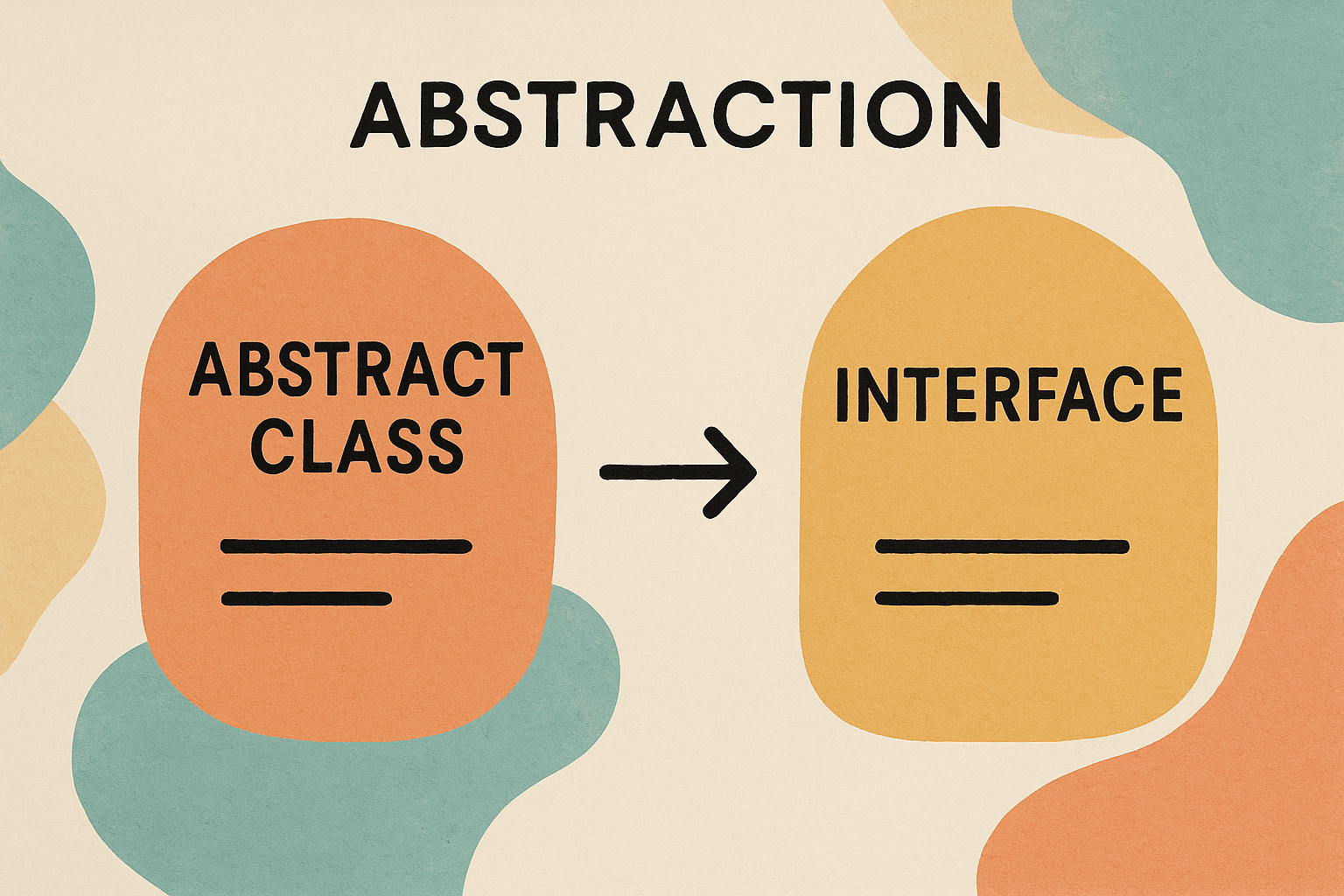Abstract Class Vs Interface
Abstraction in Java: Abstract Class vs Interface Overview
Abstraction in Java is a key object-oriented concept that allows developers to hide implementation details and expose only essential features. This visual highlights two primary ways Java achieves abstraction: **Abstract Classes** and **Interfaces**. An **abstract class** is a partially implemented blueprint that can include both abstract (unimplemented) and concrete (implemented) methods. It provides a base structure for related subclasses. In contrast, an **interface** is a fully abstract contract that declares method signatures without implementation. Classes that implement interfaces must define all declared methods. Moreover, interfaces support multiple inheritance and are ideal for defining shared capabilities across unrelated classes. Abstract classes are better suited for scenarios where you want to provide default behavior to derived classes. Furthermore, both support polymorphism and promote modular, scalable code. Therefore, understanding when to use abstract classes versus interfaces is crucial for writing clean, maintainable Java applications.
Key Features of Abstract Class vs Interface
- Abstract Class: Can include abstract and concrete methods; allows constructors and non-final variables.
- Interface: All methods are implicitly abstract (prior to Java 8); supports multiple inheritance.
- Code Reuse: Abstract classes allow shared logic, while interfaces promote implementation flexibility.
What’s Included with Abstract Class vs Interface
- Stylized visual representation of abstraction moving from abstract class to interface.
- Clear symbolic layout showing abstraction levels in object-oriented Java programming.
How to Use Abstract Class vs Interface
- Use an **abstract class** when designing a common base with shared behavior and state.
- Use an **interface** when defining capabilities that multiple, unrelated classes need to implement.
Ideal Uses and Placement
- Use abstract classes in frameworks where some methods have default logic.
- Use interfaces in APIs where consistent method declarations are required across components.
Abstract Class vs Interface Specifications
- Abstract Class: Allows method bodies, constructors, fields; single inheritance only.
- Interface: Declares methods; supports multiple inheritance; no constructors or instance fields.
Java abstraction illustrated with abstract class and interface comparison”
Explore More Resources
- Find similar products: Products Page
- Gain further insights: Our Blog
- Enhance your understanding: AI & QA Resources
- Learn from experts: Oracle Java Abstraction Guide
Why Choose Abstract Class vs Interface Guide?
This guide helps clarify Java abstraction strategies. Moreover, it supports better system design and code reuse. Therefore, it’s essential for mastering object-oriented development in Java.
Order Your Abstract Class vs Interface Guide Today!
Design flexible, powerful Java apps—learn abstraction with abstract classes and interfaces today!
$4.89
- ✅ Instant Download Available
- 🖼️ Ultra High-Resolution 4K PNG + JPG (4096×6144, 300 DPI)
- 🖨️ Prints Beautifully up to 13.6×20.5 inches
- 🚫 Personal Use Only (Not for Resale)
- 💾 Digital Product – No Physical Item Shipped
- 📥 Instant Access via Download Link Post-Purchase
All 4K images include the label "4K" in their title.
If your selected image does not include "4K", please contact us for your complimentary upgrade.
















